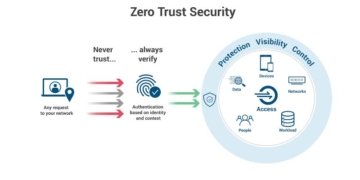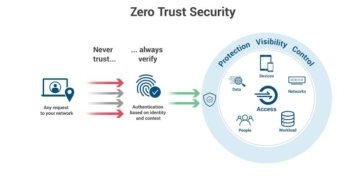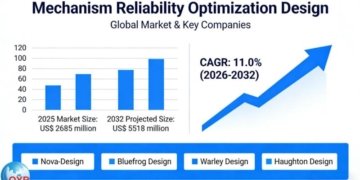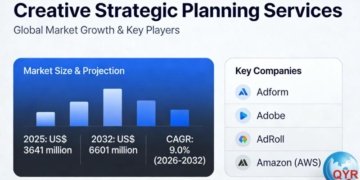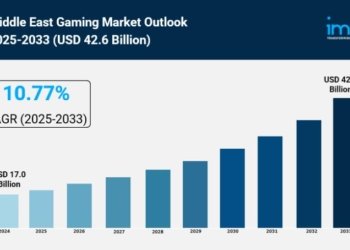Market Overview:
The virtual reality gaming market is experiencing explosive growth, driven by technological breakthroughs in VR hardware, rising consumer demand for immersive entertainment experiences, and the increasing affordability of VR devices. According to IMARC Group’s latest research publication, “Virtual Reality Gaming Market: Global Industry Trends, Share, Size, Growth, Opportunity and Forecast 2025-2033”, the global virtual reality gaming market size was valued at USD 47.1 Billion in 2024. Looking forward, IMARC Group estimates the market to reach USD 346.0 Billion by 2033, exhibiting a CAGR of 24.8% from 2025-2033.
This comprehensive analysis covers industry dynamics, business trends, market share analysis, key growth catalysts, and regional forecasts. The report provides an integrated view of research findings, market assessments, and data from multiple sources. It also highlights pivotal market dynamics including drivers and challenges, while spotlighting growth opportunities, financial insights, technological advances, emerging trends, and breakthrough innovations. Additionally, the report delivers regional market evaluation alongside competitive landscape analysis.
Grab a sample PDF of this report: https://www.imarcgroup.com/virtual-reality-gaming-market/requestsample
Our report includes:
● Market Dynamics
● Market Trends and Market Outlook
● Competitive Analysis
● Industry Segmentation
● Strategic Recommendations
Growth Factors in the Virtual Reality Gaming Market
● Technological Advancements and Hardware Evolution
The continuous development of virtual reality (VR) headsets and supporting hardware is making the gaming experience more immersive and appealing. High-definition screens, better motion detection, and wireless connections are greatly boosting the realism and user-friendliness for players, drawing in both casual and serious gamers. Revolutionary devices like Apple’s Vision Pro, launched in February 2024, showcase advanced 3D vision technology that dramatically enhances users’ sense of presence in virtual worlds.
Moreover, the integration of artificial intelligence (AI), 5G, and cloud computing in VR gaming is facilitating more advanced interactions and smoother gameplay. These technologies are minimizing latency and improving the multiplayer experience, increasing the attractiveness of VR gaming. High-resolution headsets such as the PlayStation VR2 and Oculus Quest 2 are setting new standards for visual fidelity and smooth gameplay experiences.
Supporting this evolution, powerful GPUs like the NVIDIA GeForce RTX 30 series and AMD Radeon RX 6000 series are pushing graphical quality to unprecedented heights, enabling incredibly detailed environments and lifelike character animations.
● Expanding Global Gaming Community and Accessibility
Additionally, the expanding international gaming community, driven by rising smartphone usage and improved internet access, is generating a broader audience for VR gaming. Competitive gaming and esports are increasingly motivating players to embrace VR as an immersive and interactive medium.
The democratization of VR gaming is happening rapidly, with the decreasing prices of VR headsets and gaming consoles making the technology available to a wider range of people. Affordable choices are enabling a greater number of individuals to enjoy VR gaming without substantial monetary obstacles.
In the United States alone, approximately 77.0 million Americans are expected to use virtual reality by 2024, indicating a 5% anticipated yearly growth rate. This represents significant growth from the 73.3 million VR users recorded in 2023, showing an 8% year-over-year increase. The gaming industry’s robust foundation is evident, with the U.S. game business bringing in over USD 46 Billion in 2023.
● Rise of Social Gaming and Immersive Entertainment Venues
The United States plays a crucial role in the market, driven by the rise of large-scale gaming venues equipped with advanced VR technology. These areas offer social and engaging gameplay experiences, appealing to both casual gamers and enthusiasts. A prime example is Mirra’s launch of its first U.S. location in Bellevue, featuring a 10,708-square-foot immersive gaming space with VR technology and 8K LED displays.
The venue accommodates social gaming for up to 32 players simultaneously, combining cutting-edge technology with food and beverage services. Apart from this, the increasing popularity of multiplayer VR games, where players can interact with friends and communities in virtual environments, is bolstering the market growth.
Social VR platforms are creating a shared experience, making VR gaming more engaging and appealing to a wider audience. Popular platforms like “Rec Room” and “VRChat” have achieved widespread adoption, allowing players to interact, collaborate, and connect within immersive virtual spaces.
Key Trends in the Virtual Reality Gaming Market
● Advanced Graphics and Realism Revolution
The emerging trend of realism is significantly boosting the popularity of advanced hardware and graphics in VR gaming. This focus on creating lifelike experiences is leading to the launch of cutting-edge devices like Apple’s Vision Pro headsets in February 2024, which feature advanced 3D vision technology to enhance users’ sense of presence in virtual worlds. High-resolution displays and sophisticated motion tracking are transforming how players experience virtual environments.
Additionally, high-resolution headsets such as the PlayStation VR2 and Oculus Quest 2 are delivering superior visuals and smoother gameplay, further elevating the immersive experience for gamers. The development of haptic feedback technology and spatial audio systems is creating more comprehensive sensory experiences. Advanced GPUs are enabling ray tracing capabilities and faster rendering times, bringing unprecedented visual fidelity to VR gaming environments.
● Multiplayer and Social Gaming Integration
The rising emphasis on multiplayer and social experiences is transforming VR into a platform for dynamic social interaction, significantly contributing to the market growth. Games like “Rec Room” and “VRChat” have achieved widespread popularity, allowing players to interact, collaborate, and connect within immersive virtual spaces, enhancing engagement. Social VR platforms are expanding beyond traditional gaming boundaries.
Beyond gaming, platforms such as Facebook’s Horizon Worlds enable users to create, explore, and share worlds together, fostering a sense of community and further driving market revenue. The integration of VR into mainstream entertainment is exemplified by partnerships like the Premier League’s collaboration with Rezzil in March 2024, developing an official VR video game that recreates iconic goals and historic moments. Additionally, VR-based eSports tournaments and collaborative gaming environments are gaining traction, positioning VR gaming as a versatile tool for entertainment, interaction, and creativity, propelling the market growth.
● Health and Fitness Gaming Innovation
The integration of virtual reality in the healthcare industry is becoming a significant trend, as VR games are being designed to promote physical activity. Games such as “Supernatural” and “Beat Saber” blend exercise with gaming, providing an enjoyable method to stay in shape. This wellness-focused approach is attracting health-conscious consumers who seek interactive fitness solutions.
Companies are introducing specialized VR accessories to enhance the fitness experience, including innovative products like the Virtuix VR treadmill and the Teslasuit haptic suit. For instance, in March 2024, Virtuix developed the “Omni One” full-body virtual reality (VR) treadmill and gaming system.
In addition, it features a proprietary 360-degree treadmill that generally enables players to physically run around inside virtual reality games while remaining in the same spot in their place space. This trend represents a significant shift toward gamification of fitness, making exercise more engaging and accessible through immersive technology.
Ask analyst of customized report: https://www.imarcgroup.com/request?type=report&id=1034&flag=E
Leading Companies Operating in the Global Virtual Reality Gaming Market Industry:
● Fove
● Google
● HTC
● Facebook (Meta)
● Razer
● Samsung
● Sony
● Zeiss International
● AMD
● GoPro
● Largan Precision
● Nvidia
● Qualcomm
Virtual Reality Gaming Market Report Segmentation:
Breakup by Segment:
● Software
● Hardware
Breakup by Device:
● Personal Computers
● Gaming Consoles
● Mobile Devices
Breakup by Age Group:
● Adults
● Children
Breakup by Type of Games:
● Racing
● Adventure
● Fighting
● Shooting
● Mystery Thriller
● Puzzle
● Science Fiction
● Others
Regional Insights:
● North America (United States, Canada)
● Asia Pacific (China, Japan, India, South Korea, Australia, Indonesia, Others)
● Europe (Germany, France, United Kingdom, Italy, Spain, Russia, Others)
● Latin America (Brazil, Mexico, Others)
● Middle East and Africa
Research Methodology:
The report employs a comprehensive research methodology, combining primary and secondary data sources to validate findings. It includes market assessments, surveys, expert opinions, and data triangulation techniques to ensure accuracy and reliability.
Note: If you require specific details, data, or insights that are not currently included in the scope of this report, we are happy to accommodate your request. As part of our customization service, we will gather and provide the additional information you need, tailored to your specific requirements. Please let us know your exact needs, and we will ensure the report is updated accordingly to meet your expectations.
About Us:
IMARC Group is a global management consulting firm that helps the world’s most ambitious changemakers to create a lasting impact. The company provide a comprehensive suite of market entry and expansion services. IMARC offerings include thorough market assessment, feasibility studies, company incorporation assistance, factory setup support, regulatory approvals and licensing navigation, branding, marketing and sales strategies, competitive landscape and benchmarking analyses, pricing and cost research, and procurement research.
Contact Us:
IMARC Group
134 N 4th St. Brooklyn, NY 11249, USA
Email: sales@imarcgroup.com
Tel No:(D) +91-120-433-0800
United States: +1-201-971-6302
This release was published on openPR.


